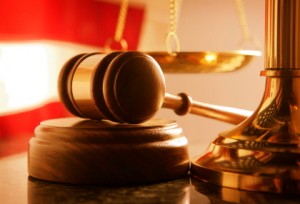Religious Exemption: When Faith and Laws Collide
April 14th, 2015
The American Constitution guarantees that those who are subject to the laws of the United States have the freedom to practice, or not to practice, any religion as part of their first amendment rights. The first amendment also carries with it the prohibition on Congress promoting or establishing one religion over others or restricting an individual’s religious practices. As the Constitution is the supreme law of our land it will trump any state law that is enacted in violation of its provisions. This conflict is one that has played out in America’s courts very frequently with regard to the first amendment as many states attempt to carve out exemptions to some laws which may arguably violate citizens’ religious beliefs.

The Universal Life Church enjoys equal rights under U.S. law thanks in part to the Establishment Clause.
Religious Exemption Laws and Debate
The legislatures in some, but not all, states have passed laws which provide certain groups of people the right to be exempt from other laws based on their religious beliefs. These laws were in large part in response to the federal Religious Freedom Restoration Act (RFRA), which was passed by the U.S. Congress. Initially intended to prohibit states from enacting any laws which burdened an individual’s right to free exercise of religion, the Supreme Court restricted it somewhat by ruling that Congress lacked the power to restrict the enforcement of state laws. In response to the Supreme Court’s ruling, many states then enacted their own versions of RFRA that carry with them the same purpose.
At first blush, it is easy to be confused as to why there would be any controversy over laws designed to protect the constitutional rights of American citizens. The law in practice, however, has shown that the provisions of the federal and state RFRAs can be used to potentially violate the rights of other citizens under the guise of religious freedom. This is currently the state of the laws in many states as they are being applied to gay Americans. For example, countless employment and public accommodation situations around the country are pitting the strongly held religious beliefs of those who oppose homosexuality against gay Americans’ right to live peacefully and exercise the same rights as all citizens.
The Courts
With many of these laws in place, including RFRA on the federal level, courts around the country are busy interpreting the law as they apply to the facts of hundreds of cases. One of the more notable cases include Hobby Lobby’s request for exemption from the Affordable Care Act’s mandate of covering birth control and other family planning methods, based on its owners’ strongly held religious belief against these forms of family planning. To make a decision in these types of cases, courts are directed to “strike sensible balances” between a law enacted by a government and the religious freedom provisions of the Constitution.
In order to do so, a court will analyze the arguably offensive law in question in order to determine whether the government has a compelling interest in restricting the religious action. For example, a court could easily find that a state government has a compelling interest to protect citizens against being murdered in the name of a religious ritual requiring human sacrifice. Most cases are not this simple, and the Universal Life Church Case Law will continue to stay abreast of any cases involving the potential restriction by the government on the free exercise of religion.



I use marijuana oil mixture. From a recipe out of the King James Bible. Would that exempt me from prosecution? It is part of my churches policies.
I am looking for some incite.